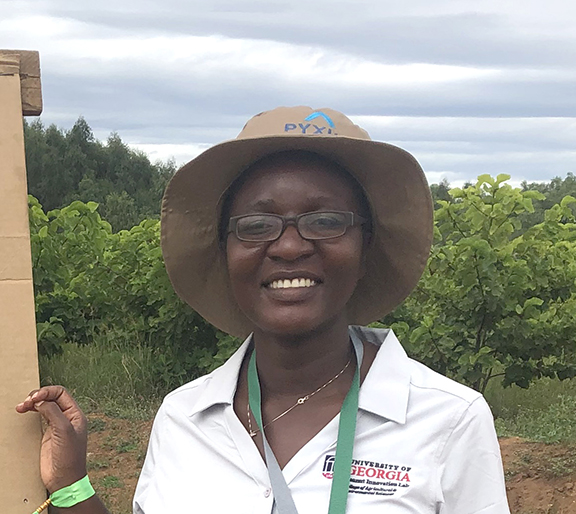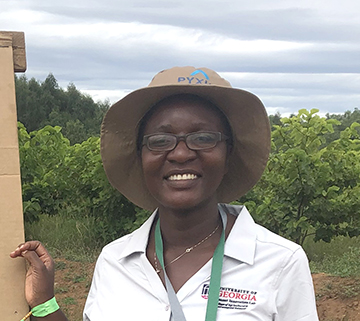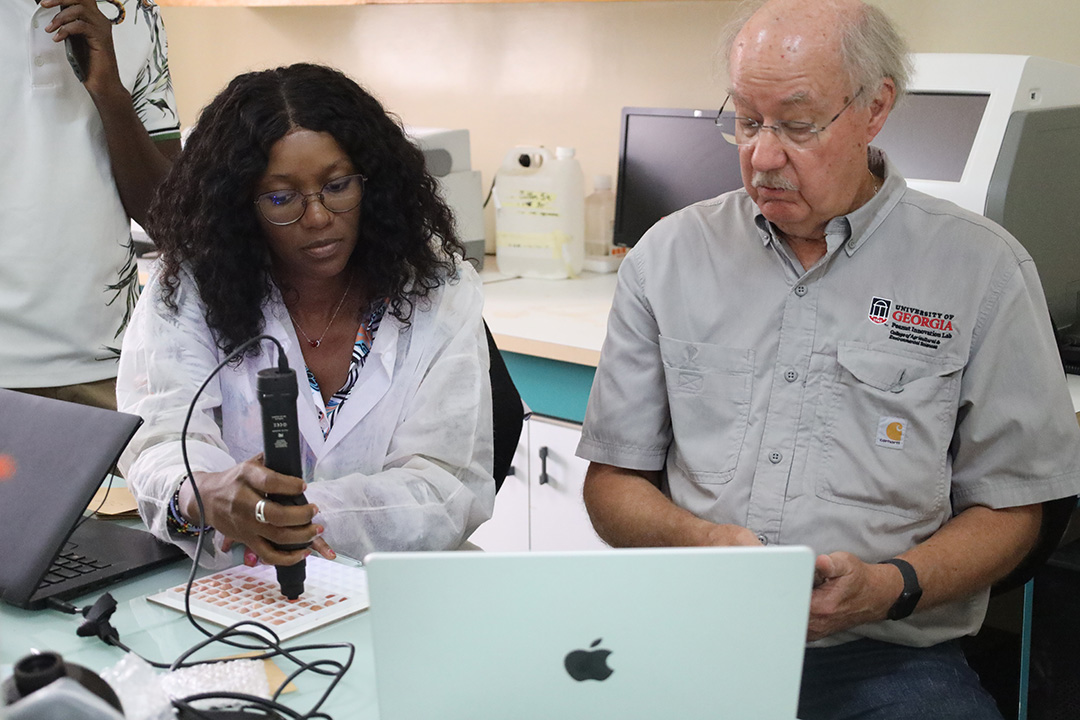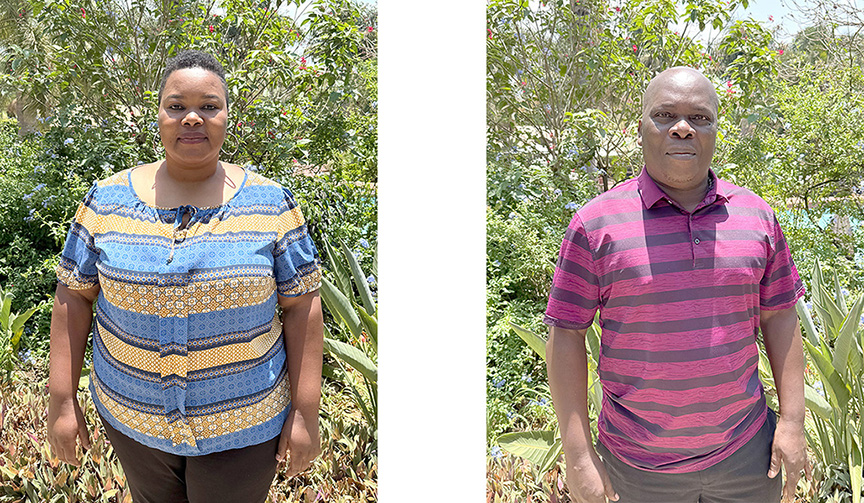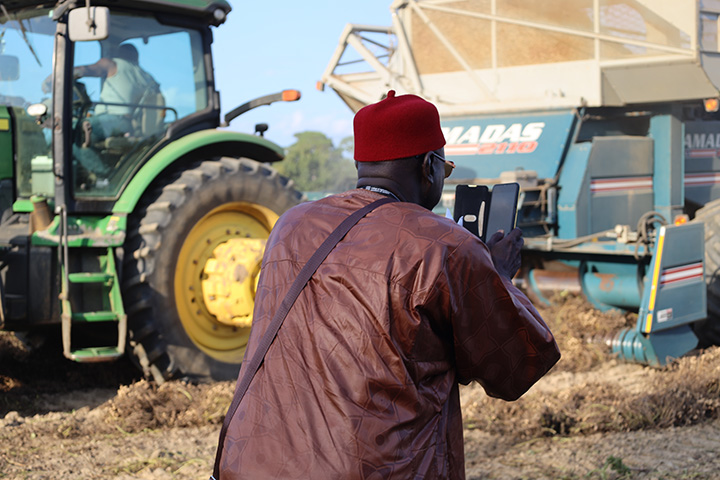The Feed the Future Innovation Lab for Peanut recently added two team members in Malawi to oversee projects there. While the Peanut Innovation Lab is headquartered at the University of Georgia and involves scientists from two dozen research insitutions in the U.S. and Africa, these Malawi-based team members are part of the management entity, overseeing day-to-day operations in a very hands-on way.
Meet Veronica Guwela, project manager for bio-science research.
Dr. Guwela holds a dual PhD (Plant Breeding and Genetics and Crop and Soil Sciences) from a joint PhD program between University of Nottingham and Rothamsted Research in the UK, and Lilongwe University of Agriculture and Natural Resources in Malawi.
Her work experience involves several international research institutions and universities, where she has focused on agriculture research for development, seed systems, agronomy, capacity building, agroecology, private sector engagement, and plant breeding. She has worked in projects funded by USAID, AGRA, Irish Aid, DFID, Royal Norwegian Embassy, and CGIAR Climate Change, Agriculture and Food Security (CCAFS) program. She was the 2015 African Women in Agriculture Research and Development award winner.
As the project manager for biological science in Malawi, Guwela works closely with public and private partners – including the Department of Agricultural Research Services and companies such as Pyxus, Malawi Mango and Agricane – to facilitate variety and production trials.
What intrigued you about the PIL job?
I am very passionate about research for development that addresses production challenges in low- and middle-income countries. When I first saw the PIL job advertisement, I noticed that the job involves development of new varieties of peanut that respond to different production challenges in Africa, among them the devastating groundnut rosette and leaf spots diseases. The job also involves trialing of different production practices to improve groundnut yields, reduce diseases and crop losses due to impacts of climate change. I was happy to be involved in this work, as I was aware that most smallholder farmers in Africa are not really making enough profits from peanut production because their yield are below the potential yields due to the challenges that the innovation lab is working to address.
Did you always plan to work in agriculture?
Yes and no. When I was growing up, my role models were lawyers. I thought I was going to be a lawyer. In my upper primary school while harvesting maize in a family farm, I noticed that the maize was affected by maize smut, I got very interested to know how it came about and what could be done to get rid of it, as it was causing yield loss. This is where my interest in agriculture started. When I got my bachelor’s degree, my career path was mapped, and I planned to have a long-term career in agriculture.
Your experience is diverse and includes work in the public sector, as well as in an academic setting, with international organizations and with private companies. Do you enjoy the challenge of working with groups that have the same goal but different ways of getting there?
Yes, I enjoy working with diverse groups. I believe transforming the agriculture sector to be more profitable, resilient, and sustainable requires a collective effort from people with diverse backgrounds. For example, my current role involves working with people from universities, private sector, non-governmental organizations etc., each playing a unique role to ensure that smallholder farmers in Malawi, and broader Africa, produce high yields of quality peanuts to meet their income and nutritional needs.

